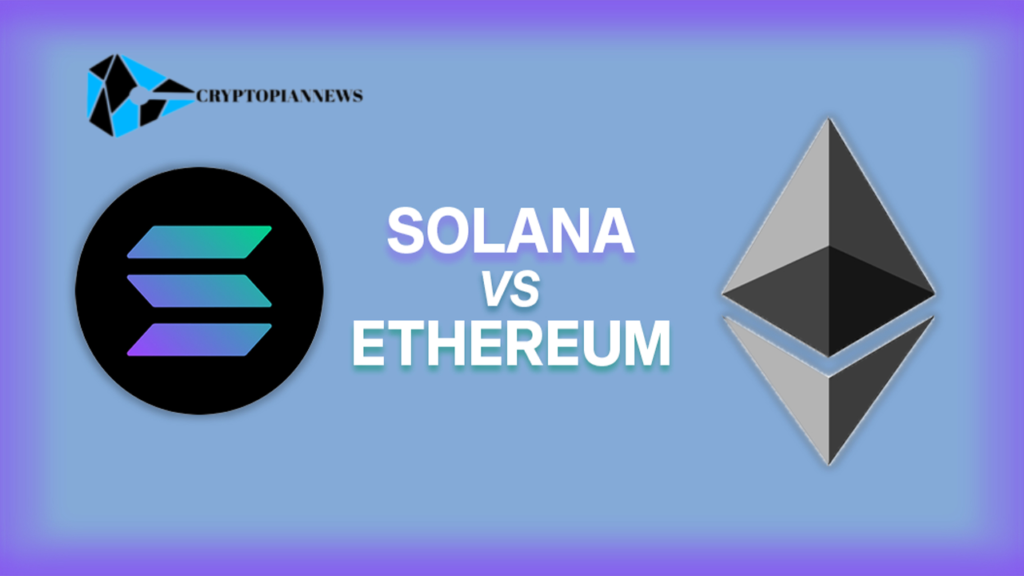Introduction to Solana and Ethereum
In the realm of blockchain and cryptocurrencies, Ethereum has long been regarded as a trailblazer, pioneering smart contracts and decentralized applications (DApps). However, in recent times, a formidable competitor has emerged in the form of Solana. Both platforms offer unique features and functionalities, but analysts are now speculating whether Solana could surpass Ethereum in prominence and market dominance.
The current state of Ethereum
Ethereum, launched in 2015 by Vitalik Buterin, has enjoyed unrivaled success in the crypto space. It serves as the foundation for countless DApps and decentralized finance (DeFi) protocols, facilitating millions of transactions daily. However, Ethereum’s scalability issues have become increasingly apparent as its network congestion leads to exorbitant gas fees and slower transaction speeds.
The rise of Solana
Solana, a relatively newer entrant to the scene, has quickly gained traction due to its innovative approach to scalability and performance. Utilizing a unique consensus mechanism called Proof of History (PoH) coupled with other cutting-edge technologies, Solana boasts lightning-fast transaction speeds and minimal fees, positioning itself as a viable alternative to Ethereum.

Comparison between Solana and Ethereum
Scalability
Ethereum’s scalability limitations have hindered its ability to accommodate growing demand, resulting in network congestion and high fees. On the other hand, Solana’s architecture is designed for scalability, capable of processing thousands of transactions per second without compromising efficiency.
Transaction speed
Solana’s streamlined architecture enables transactions to be confirmed in a matter of seconds, providing users with a seamless experience. In contrast, Ethereum’s congested network often leads to significant delays in transaction confirmations, frustrating users and developers alike.
Gas fees
One of the most significant pain points for Ethereum users is the exorbitant gas fees required to execute transactions or interact with smart contracts. Solana, with its low-cost transactions, offers a more affordable alternative, attracting users seeking cost-effective solutions.

Recent developments in Solana
Solana’s rise to prominence has been fueled by a series of strategic partnerships and innovative developments. Projects built on the Solana ecosystem continue to proliferate, showcasing the platform’s versatility and potential to disrupt traditional finance and other industries.
Challenges faced by Ethereum
Despite its pioneering status, Ethereum faces numerous challenges, including scalability issues, high gas fees, and increased competition from rival blockchains. The platform’s transition to Ethereum 2.0 aims to address these issues, but progress has been slow, leaving room for alternative solutions like Solana to gain ground.
The potential of Solana to flip Ethereum
Analysts are increasingly bullish on Solana’s prospects, citing its superior scalability, performance, and developer-friendly ecosystem as key factors driving its potential to surpass Ethereum in market capitalization and adoption. The concept of Solana flipping Ethereum, once considered a distant possibility, is now being actively debated within the crypto community.
Analysts’ perspectives on Solana’s future
Leading analysts and industry experts have weighed in on Solana’s trajectory, with many expressing optimism about its long-term prospects. Some predict that Solana could emerge as the preferred platform for DeFi, gaming, and NFTs, leveraging its technical advantages to capture a significant share of the market currently dominated by Ethereum.
Potential implications of Solana overtaking Ethereum
The hypothetical scenario of Solana flipping Ethereum carries profound implications for the broader crypto landscape. It could signal a paradigm shift in blockchain technology, reshaping industry dynamics and challenging the hegemony of established players. Additionally, it may incentivize further innovation and competition, ultimately benefiting users and driving broader adoption of decentralized technologies.
Solana’s impact on the crypto market
As Solana continues to gain momentum, its impact on the broader crypto market cannot be overstated. Its success has already catalyzed renewed interest in scalability-focused projects and sparked debate about the future direction of blockchain technology. Whether Solana ultimately supplants Ethereum or coexists alongside it, its rise underscores the dynamic nature of the crypto space and the constant quest for innovation and improvement.
ALFA-BANK TAKES THE DIGITAL PLUNGE: RUSSIAN FINANCIAL GIANT ROLLS OUT DIGITAL ASSET OFFERINGS
WHY SMOOTH LOVE POTION SLP TOKEN PRICE IS UP, MAIN REASONS
UNPACKING DEFAMATION ALLEGATIONS: WSJ VS TETHER-BITFINEX



